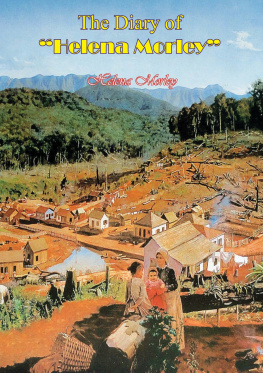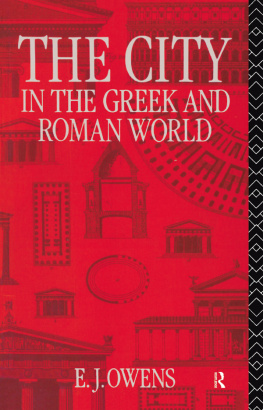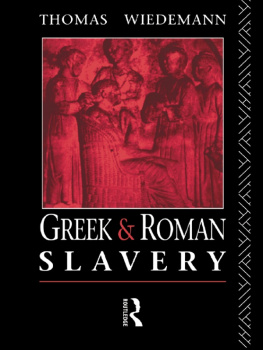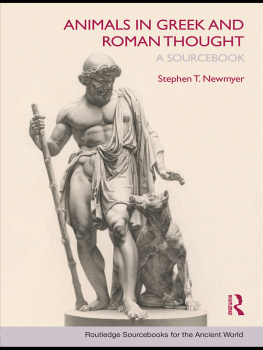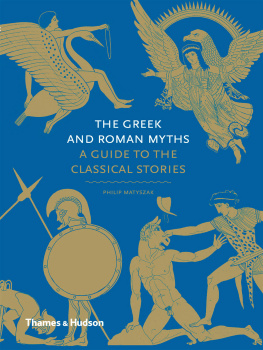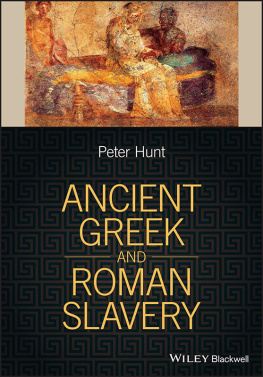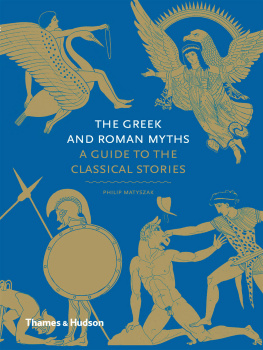LACY COLLISON-MORLEY
FORMERLY SCHOLAR OF ST. JOHN'S COLLEGE, OXFORD
AUTHOR OF "GIUSEPPE BARETTI AND HIS FRIENDS," "MODERN ITALIAN LITERATURE"
OXFORD
B.H. BLACKWELL, BROAD STREET
LONDON
SIMPKIN, MARSHALL & CO., LIMITED
MCMXII
This collection was originally begun at the suggestion of Mr. Marion Crawford, whose wide and continual reading of the classics supplied more than one of the stories. They were put together during a number of years of casual browsing among the classics, and will perhaps interest others who indulge in similar amusements.
CONTENTS
I
THE POWER OF THE DEAD TO RETURN TO EARTH
Though there is no period at which the ancients do not seem to have believed in a future life, continual confusion prevails when they come to picture the existence led by man in the other world, as we see from the sixth book of the neid. Combined with the elaborate mythology of Greece, we are confronted with the primitive belief of Italy, and doubtless of Greece tooa belief supported by all the religious rites in connection with the deadthat the spirits of the departed lived on in the tomb with the body. As cremation gradually superseded burial, the idea took shape that the soul might have an existence of its own, altogether independent of the body, and a place of abode was assigned to it in a hole in the centre of the earth, where it lived on in eternity with other souls.
This latter view seems to have become the official theory, at least in Italy, in classical days. In the gloomy, horrible Etruscan religion, the shades were supposed to be in charge of the Conductor of the Deada repulsive figure, always represented with wings and long, matted hair and a hammer, whose appearance was afterwards imitated in the dress of the man who removed the dead from the arena. Surely something may be said for Gaston Boissier's suggestion that Dante's Tuscan blood may account to some extent for the gruesome imagery of the Inferno.
Cicero
These provisions clearly show an official belief that death did not create an impassable barrier between the dead and the living. The spirits of the departed still belonged to the city of their birth, and took an interest in their old home. They could even return to it on the days when "the trench of the gods of gloom lies open and the very jaws of hell yawn wide."
There is nothing more characteristic of paganism than the passionate longing of the average man to perpetuate his memory after death in the world round which all his hopes and aspirations clung. Cicero uses it as an argument for immortality.
Many men left large sums to found colleges to celebrate their memories and feast at their tombs on stated occasions. Violators of tombs were threatened with the curse of dying the last of their racea curse which Macaulay, with his intense family affection, considered the most awful that could be devised by man; and the fact that the tombs were built by the high road, so that the dead might be cheered by the greeting of the passer-by, lends an additional touch of sadness to a walk among the crumbling ruins that line the Latin or the Appian Way outside Rome to-day.
No one of the moderns has caught the pagan feeling towards death better than Giosu Carducci, a true spiritual descendant of the great Romans of old, if ever there was one. He tells how, one glorious June day, he was sitting in school, listening to the priest outraging the verb "amo," when his eyes wandered to the window and lighted on a cherry-tree, red with fruit, and then strayed away to the hills and the sky and the distant curve of the sea-shore. All Nature was teeming with life, and he felt an answering thrill, when suddenly, as if from the very fountains of being within him, there welled up a consciousness of death, and with it the formless nothing, and a vision of himself lying cold, motionless, dumb in the black earth, while above him the birds sang, the trees rustled in the wind, the rivers ran on in their course, and the living revelled in the warm sun, bathed in its divine light. This first vision of death often haunted him in later years; and one realizes that such must often have been the feelings of the Romans, and still more often of the Greeks, for the joy of the Greek in life was far greater than that of the Roman. Peace was the only boon that death could bring to a pagan, and "Pax tecum terna" is among the commonest of the inscriptions. The life beyond the grave was at best an unreal and joyless copy of an earthly existence, and Achilles told Odysseus that he would rather be the serf of a poor man upon earth than Achilles among the shades.
When we come to inquire into the appearance of ghosts revisiting the glimpses of the moon, we find, as we should expect, that they are a vague, unsubstantial copy of their former selves on earth. In Homer but the unsubstantial, shadowy aspect is by far the commonest, and best harmonizes with the life they were supposed to lead.
Hitherto we have been dealing with the spirits of the dead who have been duly buried and are at rest, making their appearance among men only at stated intervals, regulated by the religion of the State. The lot of the dead who have not been vouchsafed the trifling boon of a handful of earth cast upon their bones was very different. They had not yet been admitted to the world below, and were forced to wander for a hundred years before they might enter Charon's boat. neas beheld them on the banks of the Styx, stretching out their hands "rip ulterioris amore." The shade of Patroclus describes its hapless state to Achilles, as does that of Elpenor to Odysseus, when they meet in the lower world. It is not surprising that the ancients attached the highest importance to the duty of burying the dead, and that Pausanias blames Lysander for not burying the bodies of Philocles and the four thousand slain at gospotami, seeing that the Athenians even buried the Persian dead after Marathon.
The spirits of the unburied were usually held to be bound, more or less, to the spot where their bodies lay, and to be able to enter into communication with the living with comparative ease, even if they did not actually haunt them. They were, in fact, evil spirits which had to be propitiated and honoured in special rites. Their appearances among the living were not regulated by religion. They wandered at will over the earth, belonging neither to this world nor to the next, restless and malignant, unable to escape from the trammels of mortal life, in the joys of which they had no part. Thus, in the Phdo we read of souls "prowling about tombs and sepulchres, near which, as they tell us, are seen certain ghostly apparitions of souls which have not departed pure ... These must be the souls, not of the good, but of the evil, which are compelled to wander about such places in payment of the penalty of their former evil way of life."
Apuleius classifies the spirits of the departed for us. The Manes are the good people, not to be feared so long as their rites are duly performed, as we have already seen; Lemures are disembodied spirits; while Larv are the ghosts that haunt houses. Apuleius, however, is wholly uncritical, and the distinction between Larv and Lemures is certainly not borne out by facts.
The Larv had distinct attributes, and were thought to cause epilepsy or madness. They were generally treated more or less as a joke, when the question of the deification of the late Emperor Claudius is laid before a meeting of the gods, Father Janus gives it as his opinion that no more mortals should be treated in this way, and that "anyone who, contrary to this decree, shall hereafter be made, addressed, or painted as a god, should be delivered over to the Larv" and flogged at the next games.




